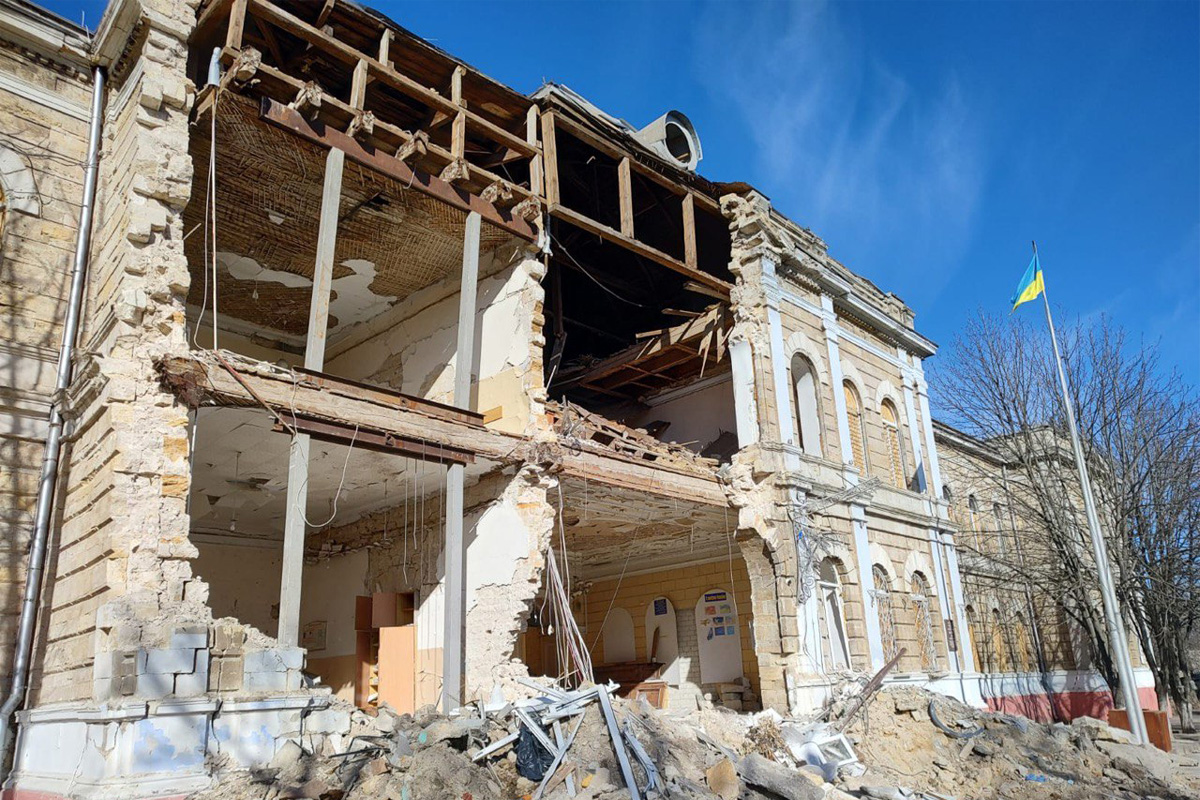A civic initiative seeks justice in Ukraine for Russian war crimes
In the wake of Russia’s full-scale of invasion Ukraine, dozens of civil society groups have joined forces with the Prosecutor General’s office in the war-torn nation to methodically log and report war crimes committed by Moscow’s troops.
One of the groups joining the efforts is the Helsinki Human Rights Union in Ukraine, which in the spring of last year launched the so-called “Tribunal for Putin” initiative. According to its website, the initiative has recorded 48,000 war crimes committed by Russian troops since February last year.
“The occupiers repeatedly caused harm to the civilian population by shelling residential buildings, hospitals, schools, churches, cultural monuments, and life support infrastructure,” the initiative stated in August. It added that investigating the alleged crimes could take “years, if not decades.”
There has been a long list of well-documented Russian war crimes that have shocked the world since Russia invaded in 2022. In the towns of Bucha, Chernihiv, and Sumy, horrific scenes of maimed civilians and mass graves were uncovered when Russian forces withdrew, and there have also been widespread reports of rape and torture.
Serhiy Movchan, the head of the Helsinki Human Rights Union war crimes documentation department, told Context.ro in an interview that as well as documenting war crimes, it is critical that the initiative provides legal assistance to victims.
“We help them write statements about a crime or a complaint (which are then sent) to the European Court of Human Rights, or a UN committee,” he said, “depending on what happened.”
Since April last year, teams from the union’s initiative – including legal experts, journalists, and nongovernmental organisations – have been active in every region of Ukraine to document potential war crimes.
This summer, the United Nation’s human rights chief, Volker Turk, told the Human Rights Council that a continuing lack of accountability for Russian troops’ violations and abuses is “deeply concerning.”
He said that the summary executions of 77 civilians in detention had been documented. “These findings are shocking,” he told delegates.
Documenting war crimes is no easy task, especially in occupied territories since many people aren’t willing to talk on record about the crimes they’ve been subjected to, or witnessed. “They don’t want to talk because they are afraid that if the Russians return, they will be the first to shoot them,” Movchan said.

Serhiy Movchan, the head of the Helsinki Human Rights Union war crimes documentation department (source: Serhiy Movchan)
That is a critical step documenting war crimes and without it, any subsequent phases of investigation can fall below the well-defined standards widely considered as sufficient evidence.
The dozens civic groups aiding Ukraine’s general prosecutor’s office are using well-defined and established mechanisms set out by the U.N., the Council of Europe, the Organization for Security and Co-operation in Europe, the European Union, and the International Criminal Court.
Movchan said that war crimes are classified in accordance with the Rome Statute of the ICC, which, although not ratified by Ukraine, was extended in the wake of Russia’s invasion to cover the events in the war-torn country.
“We use it because, for example, the Geneva Conventions have less detailed criteria and some crimes are not (clearly) defined,” he said. “The Rome Statute is the best option, because we are focused (taking cases) to the International Court of Justice.”
So far, the initiative has documented war crimes – including genocide and crimes against humanity – in all regions of Ukraine that have been under Russian attack.
As the war drags on, Movchan said, an encouraging sign is that people in Ukraine seem more willing to come forward and testify, and that more cases are now coming in from parts of the country other than the eastern regions where the conflict has been concentrated.
Interviewing people who have suffered war-related trauma, however, can make it difficult to obtain appropriately detailed reports. During the documentation process the priority is always the safety of witnesses and victims, who must be guaranteed confidentiality. They must never be put under pressure to recount scenes they have witnessed.
Movchan recalls a case involving two Ukrainian brothers who were held captive by Russian forces for two months. The brothers, he said, were kept in a darkened room in a school with more than a dozen other prisoners and were inadequately fed. Two of the captives died, he said, but the brothers were later released for reasons that remain unknown.
“We talked to one of the brothers,” he said, but that the other brother later committed suicide by hanging. “The brother we talked to said: ‘We were lucky we were not raped. We were lucky that nothing (bad) actually happened to us.”
The ICC, which frequently deploys experts to Ukraine, is currently focussing its efforts on three classifications of war crimes: the deportation of children by Russia, the shelling of Ukraine’s civilian energy infrastructure, and sexual violence, Movchan said.
This was highlighted in March this year, when the ICC issued an arrest warrant on Russian President Vladimir Putin along with his Commissioner for Children’s Rights, Maria Lvova-Belova, for the mass deportations of Ukrainian children from Ukrainian territory.
Movchan said that his teams have prepared two submissions to send to the ICC. One is focussed the shelling of civilian targets such as residential buildings, bus stops and cultural centres, while the second is concentrated on genocide claims in the city of Mariupol – which was under siege and decimated by Russian forces last year.
Many other countries are also helping to bolster Ukraine’s efforts to bring to account those responsible for committing war crimes.
“EU countries are involved in their own efforts to investigate and document Russian war crimes in Ukraine,” Movchan added. “This all helps Ukraine to reduce the burden at the national level.”
Edited by Stephen McGrath


